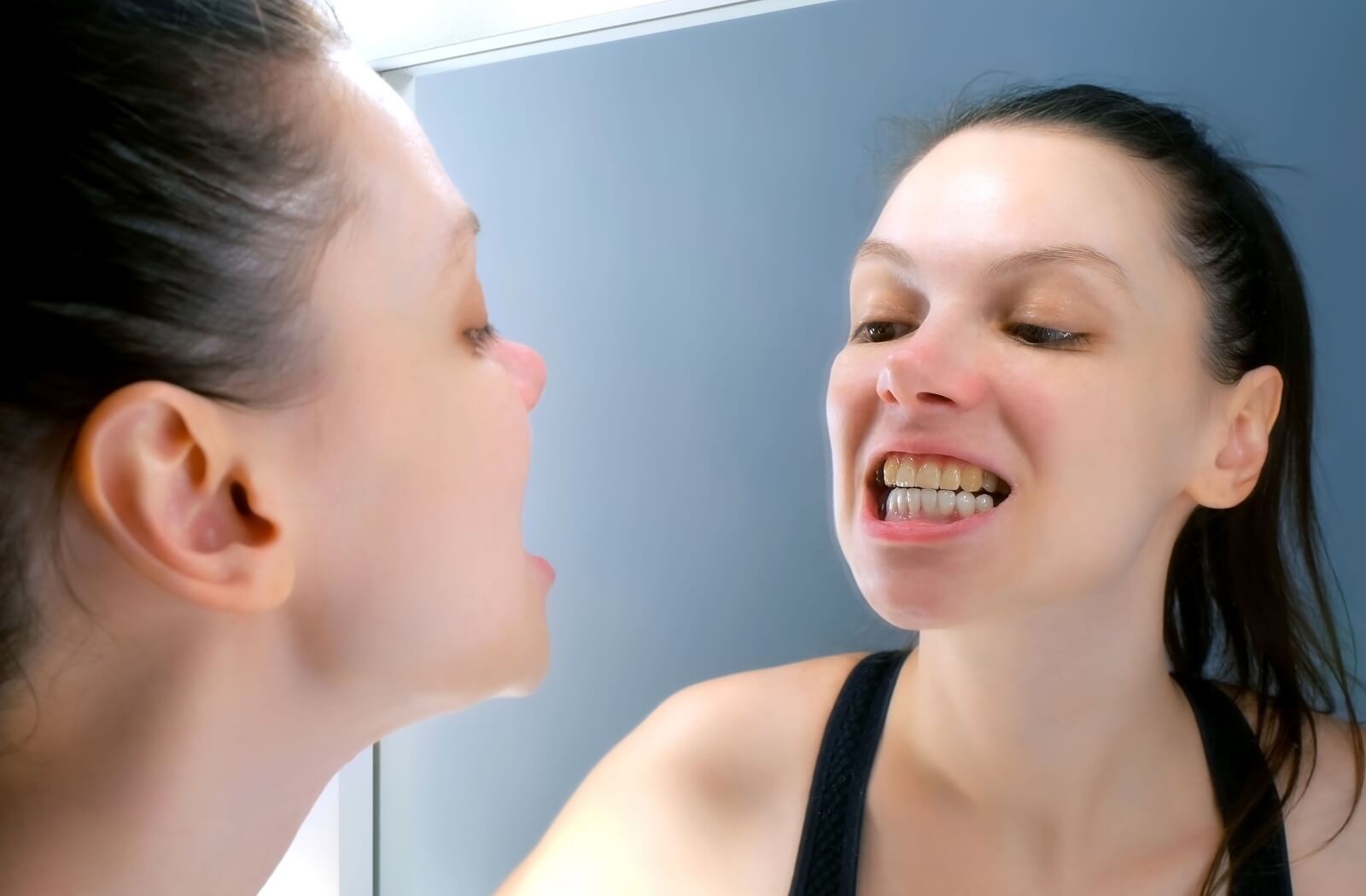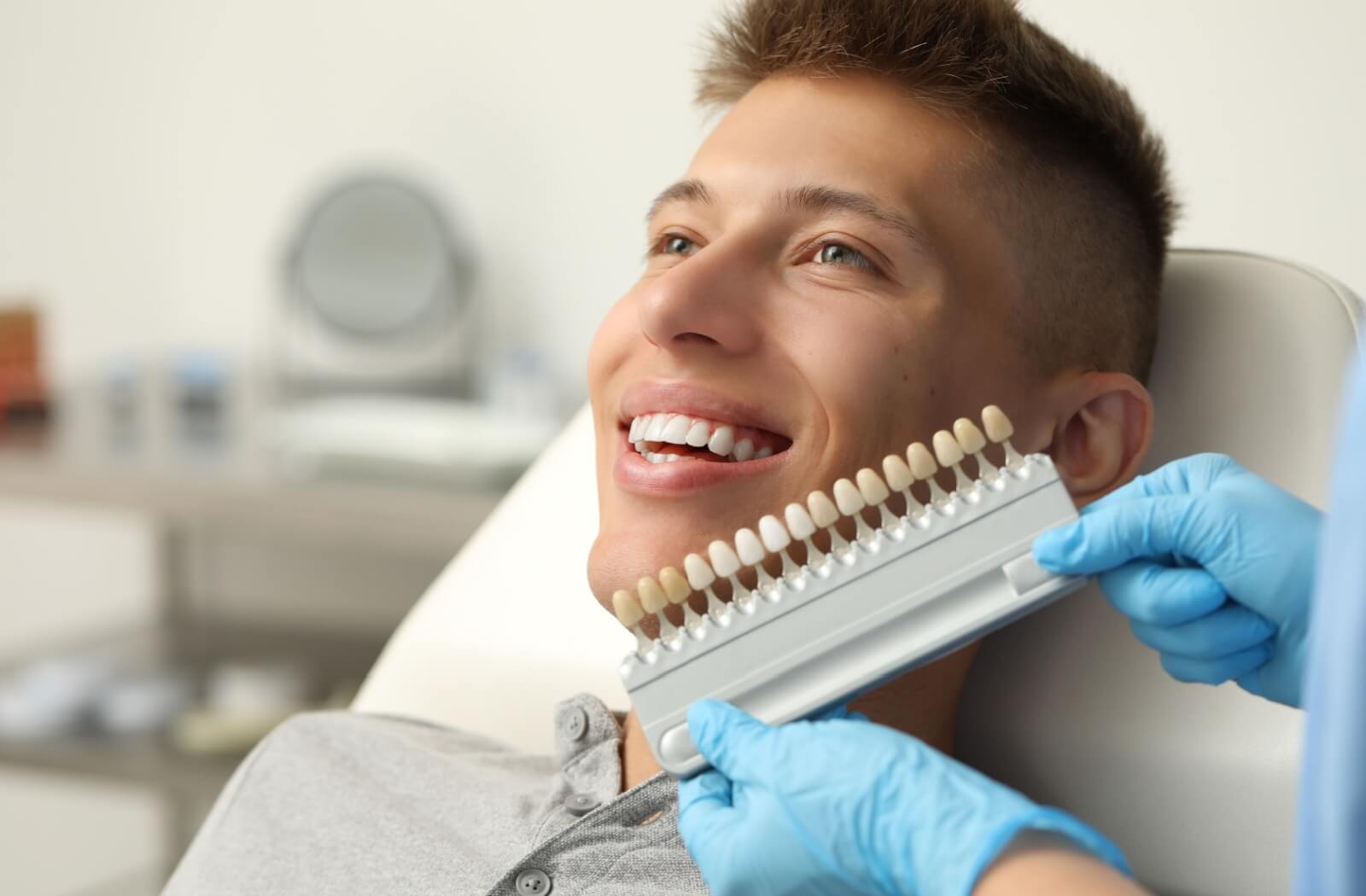Why Are My Teeth Yellow When I Brush Them Every Day?

Yellow teeth can be frustrating when you stick to a daily brushing routine. You're not alone if you're left wondering why your smile still lacks that sparkling whiteness. Some people find that their teeth aren't as white as they'd like, despite good oral hygiene habits.
Yellowed teeth have many causes. These include controllable factors, like what you eat and whether you smoke, and unavoidable things, like aging and genetics.
Brushing your teeth may also not be enough if you have tartar, which can give your teeth a yellowish appearance and can only be removed by a professional. However, people who want whiter teeth have options, such as professional whitening and veneers.
Tooth Discolouration: What You Need to Know
Before you blame your toothbrush, it's important to understand that tooth discolouration can happen for many reasons. Dentists often classify tooth discolouration as extrinsic and intrinsic:
- Extrinsic stains are more likely to affect just the enamel, the thin outer layer of your teeth. These stains typically come from substances that come into contact with your tooth's surface, such as food, drinks, and tobacco.
- Intrinsic stains begin inside the tooth, affecting the dentin underneath your enamel. These discolourations are harder to remove and often appear greyish.
There are also age-related reasons for tooth discolouration. As people get older, their teeth may look more yellow as the enamel gradually erodes. Unfortunately, you can't fix age-related changes with good brushing because everybody ages!
Causes of Yellow Teeth
If you're wondering why your teeth are yellow, here are some possible reasons.
Food & Drink
Dark-coloured foods and beverages are among the top offenders for staining teeth. Beverages that stain include red wine, coffee, and tea. Foods that stain teeth include red sauces and chocolate.
Tobacco Use
People who smoke or chew tobacco have a higher incidence of tooth discolouration: 28% compared to 15%, according to one study. Brown stains are associated with tobacco use.
Poor Oral Hygiene
Stains stick to dental plaque, a sticky layer of bacteria that forms over your teeth. Plaque is normal, but if it's not regularly cleaned, it can lead to more serious problems like cavities and gum disease.
Aging & Genetics
With time, enamel naturally thins, revealing the yellowish dentin underneath. It's a natural process that happens to everyone, even those with excellent brushing habits.
Sometimes, it's in your DNA. You can inherit a different tint or more translucent enamel, causing a naturally more yellow or greyish hue.
Health Conditions & Medications
Health conditions associated with teeth discolouration include liver and celiac disease, eating disorders, metabolic conditions, and calcium deficiency.
Meanwhile, antihistamines and drugs used to treat hypertension are linked to teeth discolouration. Antibiotic use during childhood, chemotherapy, and radiation therapy are other treatments associated with discoloured teeth.

Why Brushing Isn't Always Enough
Brushing and flossing can control plaque, but plaque can turn into tartar if not removed regularly. Tartar is a hard, crusty deposit, and it's associated with yellow, brown, or black stains.
Unfortunately, you can't remove tartar with at-home flossing and brushing. A professional cleaning is required to remove tartar.
Dealing with Yellow Teeth
A yellowish tint to your teeth can be frustrating, but you have options to protect or enhance your smile's radiance.
Preventing Stains
You can't necessarily prevent intrinsic factors like aging, genetics, and medical conditions. But there are steps you can take to minimize superficial stains.
Maintain Good Oral Hygiene
The Canadian Dental Association recommends flossing once a day and, ideally, brushing after every meal or at least once before you go to bed.
Rinse Your Mouth
Try getting into the habit of rinsing out your mouth after consuming foods and beverages that stain; this can help reduce discolouration.
Quit Smoking
Smoking or chewing tobacco can cause unsightly brown stains. Quitting isn't easy, but it brings numerous health benefits. There are also many resources available to Ontarians who are interested in quitting.
Treating Stains
When you want to renew your smile's brightness, but your brushing and flossing habits aren't doing the trick, there are other options available.
Professional Teeth Whitening
Professional whitening treatments can work effectively on extrinsic stains, and, sometimes, intrinsic stains, too. Professional teeth whitening often uses a substance like hydrogen peroxide or carbamide peroxide to remove stains from the surface of teeth.
The appointment takes approximately an hour and 30 minutes. While results vary from person to person, you can enjoy brighter teeth for 2–5 years after treatment.
Porcelain Veneers
Veneers are thin but durable shells permanently attached to the surface of the teeth. They can cover stains and other imperfections. Veneers can last a long time, typically requiring replacement every 5 to 15 years.
Veneers are custom-made and designed to blend in with the rest of your teeth.
Your Teeth Whitening Options in Markham
When your teeth have a yellowish tint or discolouration, no matter how often you brush, it isn't necessarily a sign of poor oral hygiene. Tooth discolouration can have many causes, including daily habits, natural aging, or genetics.
Brushing and flossing are essential for oral health, but they're not always enough to keep your smile stain-free.
Cosmetic dental services like professional whitening at Markham Dental can help patients achieve a brighter smile. We also offer porcelain veneers and smile makeovers. Book an appointment today at Markham Dental to learn more about your cosmetic dentistry options.